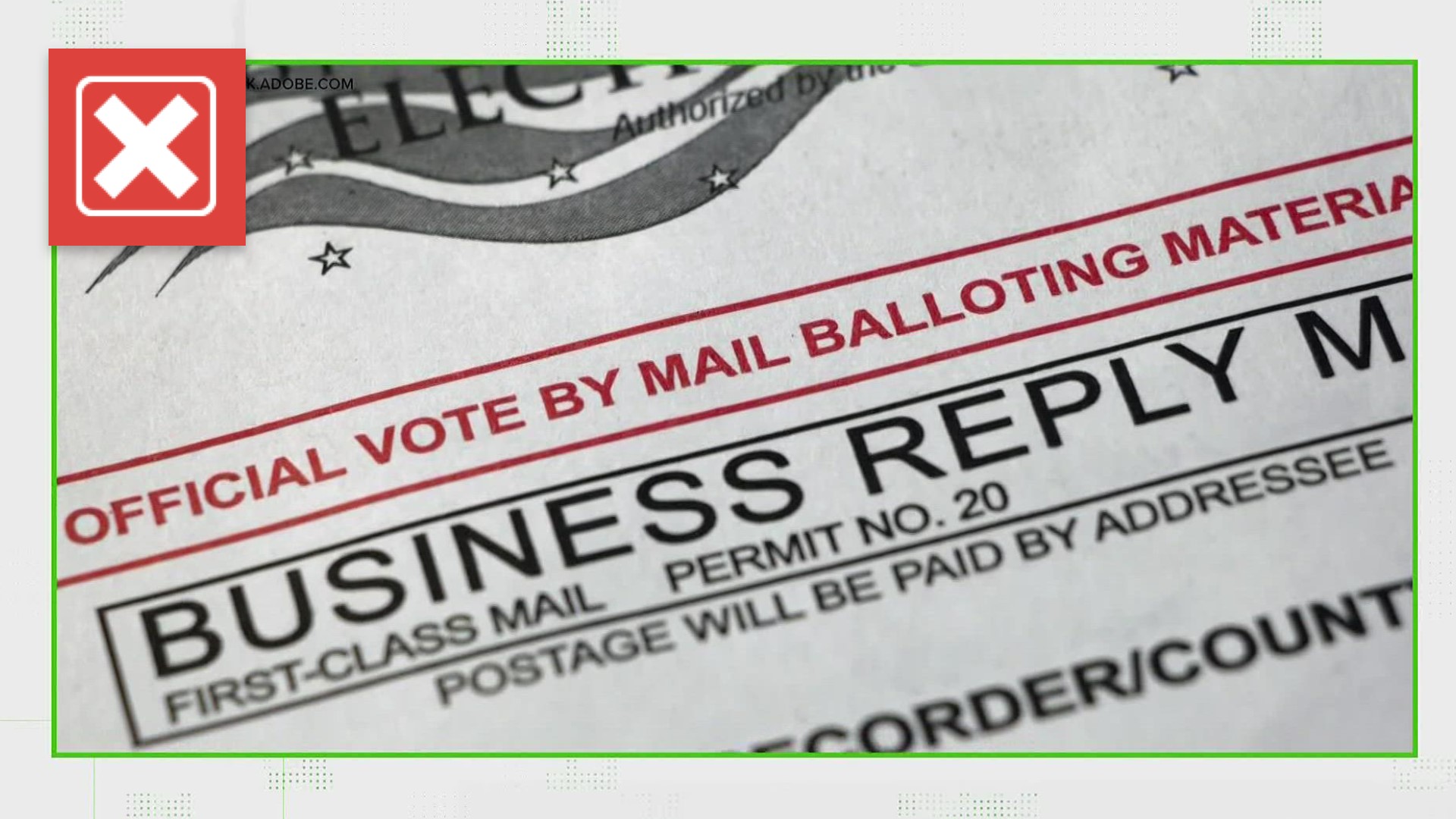ATLANTA — The absentee ballot application process is already underway for some metro Atlanta voters as we look to the November second municipal elections, and the 11Alive Verify team is getting questions about how some personal information on those applications is used.
11Alive News viewer Richard wanted to know whether personal info from his absentee ballot application will stay confidential.
QUESTION: Is a voter's phone number or email shared by open records to candidates to use in their campaign?
ANSWER: While some types of voter demographic info is available for purchase under Georgia law, phone numbers and email addresses are not included.
SOURCES:
Georgia's Secretary of State's Office
Georgia's official absentee ballot application
Emory University political science professor Dr. Andra Gillespie
WHAT WE FOUND:
While it's important to remember the secrecy of your ballot is sacred, Dr. Gillespie says whether or not you registered or actually voted in elections is a matter of public record, and Georgia law allows for the public to purchase voter demographic information.
However, the Georgia Secretary of State's office verifies that email addresses and phone numbers are not included in public profile information.
On line 6 of the absentee ballot application, it indicates it's "recommended" voters provide their phone and email – but it's not required. According to a spokesperson for Georgia's Secretary of State's office, providing your phone or email is just a way for the county to let a voter know if there's a problem with their ballot.
As a result, we can verify it's true that some voter information - like name and address - is available to the public under Georgia law. But the idea your email or phone would be shared by the state with campaigns is false.
However, it's important to note such information can be accessed in other ways.
"Candidates and interest groups doing mobilization can use voter records to identify registered voters," Dr. Gillespie explained. "If they can afford it, they are also very likely to work with commercial vendors to append public voting data onto existing consumer data (collected from your online purchase history or social media use) so that they can do a better job of learning about voters and targeting their messages accordingly. It’s with this data that you may have heard reporters and pundits talking about the differences among voters who drive Volvos vs. Ford F150’s or voters who get their groceries at Whole Foods vs. Walmart, etc."
According to Dr. Gillespie, the other way campaigns get information on voters is when voters provide it themselves.
"When you sign up for alerts from any campaign, they use that information in future elections, and they pass that information along to their parties so that other candidates in their party can contact you, too," she said.
Editor's note: Georgia law does provide additional protection for voters who are at risk of domestic violence. A spokesperson for Georgia's Secretary of State's office says 'VoteSafe' keeps confidential the address of voters with a protective order, restraining order from this or another state of whose address is a family-violence shelter. Visit here for more information or to submit an application.

